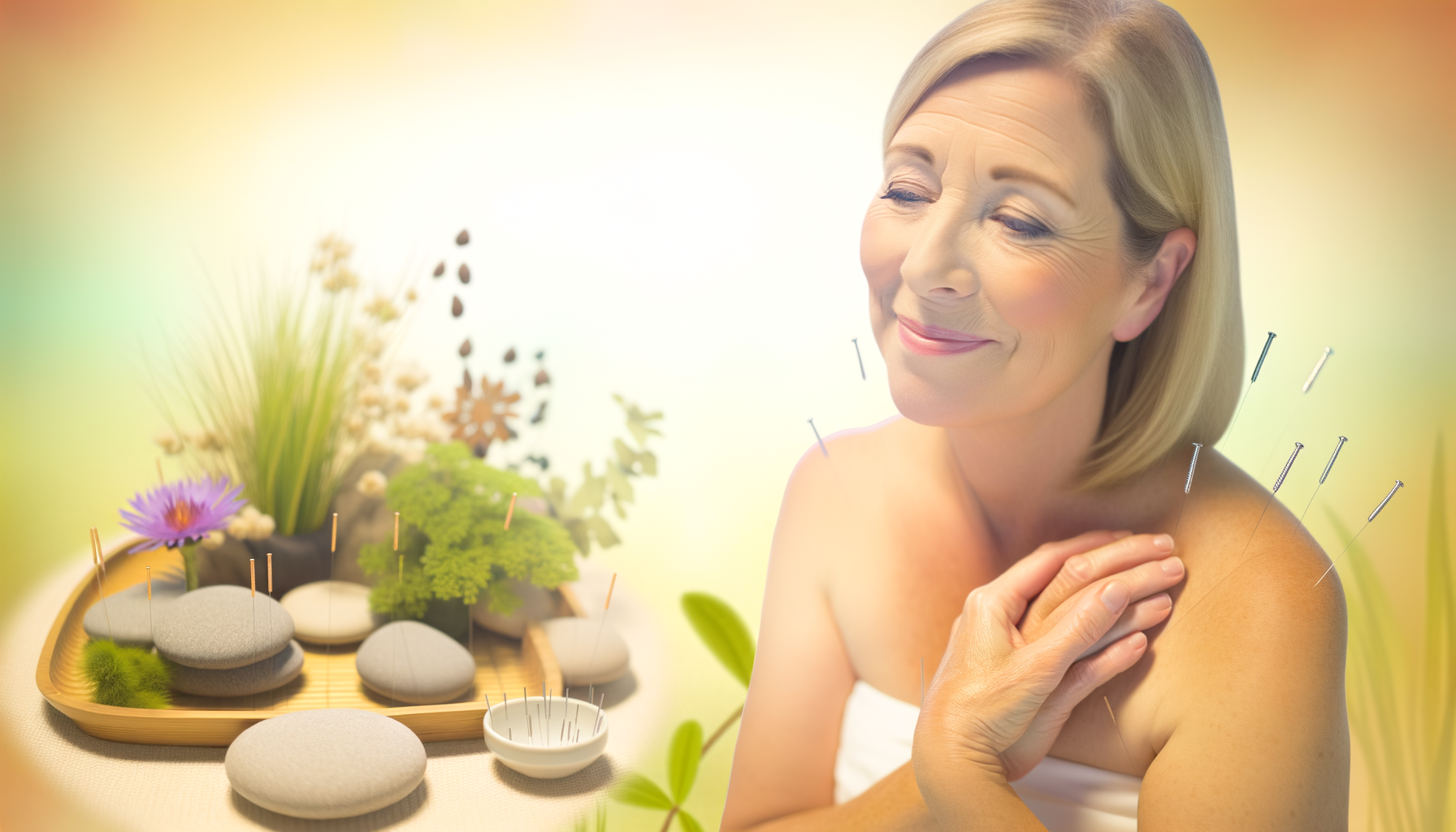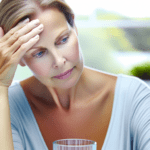Menopause marks a significant transition in a woman’s life, typically occurring in the late 40s to early 50s. It is defined as the cessation of menstrual periods for twelve consecutive months, signaling the end of reproductive capability. Symptoms vary widely among individuals but often include hot flashes, night sweats, mood swings, and changes in sexual function. These symptoms result from the body’s adjustment to decreasing levels of estrogen and progesterone.
Personal Narratives of Menopause
Personal experiences of menopause are as diverse as the women who endure them. For some, the transition is marked by significant physical and emotional challenges, while others navigate this phase with minimal discomfort. Narratives often highlight the lack of societal dialogue around menopause, contributing to a sense of isolation. Sharing stories can empower women, fostering a community of support and understanding.
The Impact of Early Menopause
Early menopause, occurring before the age of 40, can have profound implications on a woman’s health and well-being. It may arise due to genetic factors, medical interventions, or as a consequence of health conditions. Women experiencing early menopause often report intensified symptoms and may face increased risks for osteoporosis, heart disease, and cognitive changes, underscoring the need for targeted support and intervention.
Limitations of Hormone Replacement Therapy
Hormone Replacement Therapy (HRT) has been a traditional treatment for menopausal symptoms, offering relief by supplementing declining hormone levels. However, HRT is not without its limitations and risks. Concerns over increased risks of breast cancer, cardiovascular disease, and strokes have led to a more cautious approach. As a result, many women and healthcare providers are exploring alternative therapies that align with individual health profiles and preferences.
Exploring Acupuncture as a Treatment Option
Basics of Acupuncture
Acupuncture is a traditional Chinese medicine (TCM) practice that has been used for thousands of years. It involves the insertion of very thin needles through the skin at strategic points on the body, known as acupuncture points. The practice is based on the belief that this can balance a person’s energy or qi (pronounced “chee”), potentially leading to improved health and wellness. Modern acupuncture often combines traditional principles with contemporary medical knowledge.
Acupuncture in Women’s Health
Women’s health issues, particularly those associated with menopause, have been a focus of acupuncture treatment. Acupuncture is believed to address various symptoms such as hormonal imbalances, hot flashes, mood swings, and sleep disturbances. It is often sought as a complementary or alternative treatment when conventional hormone replacement therapy (HRT) is contraindicated or when women prefer a non-pharmacological approach.
Reviewing Scientific Evidence on Acupuncture for Menopause
Scientific studies have investigated the efficacy of acupuncture in alleviating menopausal symptoms. Research suggests that acupuncture can lead to a significant reduction in the frequency and severity of hot flashes. A study published in the Journal of the American Board of Family Medicine highlighted that acupuncture may reduce hot flashes in breast cancer survivors by more than 50%, both during the day and at night. Furthermore, acupuncture has been associated with improved sleep quality in postmenopausal women and may continue to reduce hot flashes for up to 6 months after treatment.
Despite these promising results, evidence of acupuncture’s therapeutic effects remains inconclusive due to non-equivocal benefits compared against sham controls and limitations in study designs. However, the natural appeal of acupuncture and its low side-effect profile make it an attractive option for many women experiencing menopausal symptoms. As with any treatment, patient attitudes, beliefs, and the decision-making process play a crucial role in the effectiveness of acupuncture.
It is important for healthcare providers to understand the varied therapeutic benefits, practical concerns, and sources of decision support that influence women’s choices regarding acupuncture. Incorporating these factors into patient-centered communication may lead to improved management of menopausal symptoms and overall quality of life.
Acupuncture’s Role in Alleviating Menopause Symptoms
Managing Hot Flashes and Night Sweats
Hot flashes and night sweats are hallmark symptoms of menopause, often causing discomfort and disruption in daily life. Acupuncture has been traditionally used to restore balance within the body, and recent studies suggest it can be effective in reducing the frequency and severity of these symptoms. By targeting specific points, acupuncture is believed to modulate the body’s temperature regulation, providing relief for many women.
Acupuncture for Pain Relief
Menopause can also bring about musculoskeletal pain, including joint discomfort and muscle tension. Acupuncture is recognized by the American College of Physicians as a non-pharmacological treatment option for pain. It stimulates the central nervous system to release endorphins, the body’s natural painkillers, offering a potential respite from the aches associated with menopausal changes.
Addressing Mood Swings and Anxiety
Mood swings and anxiety can significantly affect the quality of life during menopause. Acupuncture is thought to influence neurotransmitters in the brain, promoting relaxation and emotional balance. Many women report a sense of calm and improved mood following acupuncture treatments, which can be a welcome relief from the emotional rollercoaster of menopause.
Improving Sleep Quality Through Acupuncture
Insomnia and sleep disturbances are common complaints during menopause. Acupuncture may improve sleep by stimulating points that promote relaxation and calmness. Some practitioners also recommend soaking feet in hot water with Epsom salt before bed, a practice that complements acupuncture by further relaxing the body and preparing for restful sleep.
Combating Fatigue and Vaginal Dryness
Fatigue during menopause can be debilitating. Acupuncture may help by increasing blood flow and reducing stress on the heart and other muscles. Additionally, hormonal imbalances can lead to vaginal dryness, making sexual activity uncomfortable. Acupuncture has been reported to help some women experience increased natural lubrication, potentially making intimacy more enjoyable again.
While acupuncture is not a cure-all, it offers a holistic approach to managing menopause symptoms, addressing both physical and emotional aspects. Women seeking an alternative to hormone replacement therapy or those looking to complement their current treatment may find acupuncture to be a valuable tool in their menopause management strategy.

The Science Behind Acupuncture’s Effectiveness
Acupuncture’s Interaction with the Central Nervous System
The ancient practice of acupuncture, which involves the insertion of fine needles into specific points on the body, has long been used to alleviate a variety of health issues. One of the key mechanisms by which acupuncture is thought to work is through its interaction with the central nervous system (CNS). When needles are inserted into the skin, they stimulate nerves that send signals to the brain. This can lead to the release of endorphins, the body’s natural painkillers, and can activate parts of the brain that are involved in pain perception.
Research suggests that acupuncture can modulate activity in the hypothalamus and pituitary gland, leading to a cascade of systemic effects. The stimulation of acupuncture points is also believed to influence the autonomic nervous system, which controls bodily functions not consciously directed, such as breathing and the heartbeat, thereby promoting relaxation and stress relief.
Influence on Neurotransmitters and Hormonal Balance
Acupuncture’s ability to influence neurotransmitters and hormonal balance is another area of interest. It is thought that the practice can affect the levels of serotonin and noradrenaline, neurotransmitters that play a role in mood regulation. This may explain the potential benefits of acupuncture in treating conditions like depression and anxiety.
Moreover, acupuncture has been shown to influence the release of hormones such as cortisol, which is involved in the body’s response to stress. By regulating these chemical messengers, acupuncture can help restore balance to the body’s hormonal systems, which is particularly beneficial during life transitions such as menopause.
Traditional Chinese Medicine Perspective
From the perspective of Traditional Chinese Medicine (TCM), acupuncture works by restoring the flow of Qi (vital energy) through the body’s meridians (energy channels). According to TCM, health issues arise when Qi is blocked or unbalanced. By stimulating specific acupuncture points, practitioners aim to clear these blockages and promote the smooth flow of Qi, thereby improving health and well-being.
TCM also emphasizes the concept of Yin and Yang, two opposing yet complementary forces that must be in balance for good health. Acupuncture is seen as a way to harmonize these forces within the body. While this perspective differs from Western medical explanations, it provides a framework that has guided acupuncture practice for thousands of years.
In conclusion, the science behind acupuncture’s effectiveness is multifaceted, involving complex interactions within the CNS, effects on neurotransmitters and hormones, and the philosophical underpinnings of TCM. As research continues to evolve, our understanding of how acupuncture achieves its therapeutic effects will likely deepen, supporting its integration into holistic health practices.
Do you know the three main ways that your body gets in touch with harmful chemicals with everyday products? Knowledge is Power!
The Ultimate Detox Guide will tell you how to lower your exposure to harmful chemicals!

Selecting the Right Acupuncture Practitioner
Criteria for Licensing and Certification
When seeking an acupuncture practitioner, it is essential to consider their licensing and certification. In the United States, acupuncturists must be licensed to practice, which typically requires passing a national examination administered by the National Certification Commission for Acupuncture and Oriental Medicine (NCCAOM). Additionally, practitioners should have completed an accredited program in acupuncture or Oriental medicine. It is important to verify that the acupuncturist’s license is current and in good standing. Some states have additional requirements, so it’s wise to be familiar with local regulations.
Questions to Assess Practitioner Expertise
Before beginning treatment, it’s advisable to assess the practitioner’s expertise. Consider asking the following questions:
- How long have you been practicing acupuncture?
- What kind of training and education do you have in acupuncture and Oriental medicine?
- Do you have experience treating menopause symptoms?
- Can you provide references or testimonials from patients with similar conditions?
- How do you develop a treatment plan, and what techniques do you use?
These questions can help you gauge the practitioner’s experience and approach to treatment, ensuring they are well-equipped to address your specific needs.
The Importance of Trust and Comfort in Treatment
Establishing trust and comfort with your acupuncture practitioner is crucial for a successful treatment experience. The therapeutic relationship should be based on open communication, empathy, and mutual respect. Feeling at ease to discuss your symptoms, concerns, and preferences is vital. A good practitioner will listen attentively, explain procedures clearly, and tailor treatments to your individual needs. Trust your intuition; if you feel uncomfortable or uncertain after the initial consultation, it may be beneficial to seek a second opinion. Remember, the goal is to find a practitioner with whom you feel a sense of rapport and confidence, as this can significantly impact the effectiveness of your treatment and overall satisfaction.
Choosing the right acupuncture practitioner is a personal and important decision. By considering licensing, expertise, and the quality of the therapeutic relationship, you can find a professional who will support you through your menopause journey with skill and compassion.

THEN IT CONTAINS TOXIC CHEMICALS. WHY RISK IT GETTING SICK? GO CHEMICAL FREE.
Personal Reflections on Acupuncture Treatment
Tailoring Acupuncture to Individual Needs
Embarking on acupuncture treatment was like stepping into a world where my individuality was finally acknowledged. The acupuncturist’s approach was refreshingly personalized. He recognized that my menopause symptoms were not just a checklist to be treated en masse, but a complex interplay of experiences unique to me. We discussed my lifestyle, my stress levels, and even my dietary habits. This holistic view allowed him to tailor the acupuncture points and treatment frequency to my specific needs. It was a partnership where my input was valued, and my feedback shaped the course of my treatment.
Building a Therapeutic Relationship
The therapeutic relationship with my acupuncturist became a cornerstone of my healing journey. His ability to listen empathetically to my struggles with menopause symptoms fostered a sense of trust. Each session was more than just the placement of needles; it was an exchange of understanding and a shared commitment to finding relief. This rapport was not built overnight but grew stronger with each visit, as he consistently demonstrated care and professionalism. The comfort I felt in his presence was instrumental in the effectiveness of the treatments.
Measuring Treatment Outcomes and Effectiveness
Measuring the outcomes of acupuncture was a nuanced process. It wasn’t just about tallying the reduction in hot flashes or improved sleep patterns, although these were significant victories. It was also about the subtle shifts in my well-being. I began to notice a newfound sense of calm, a decrease in anxiety, and a more positive mood. These changes were sometimes gradual, but they were real and measurable to me. My acupuncturist and I would regularly assess these outcomes, celebrating the progress and adjusting the treatment plan as necessary to maintain the momentum towards overall well-being.
Acupuncture Within a Holistic Approach to Menopause
Integrating Acupuncture with Other Treatments
Menopause is a multifaceted transition that can affect various aspects of a woman’s health and well-being. While acupuncture has been shown to be effective in managing menopausal symptoms, it is often most beneficial when integrated into a broader, holistic treatment plan. This integrative approach may include dietary changes, herbal supplements, regular physical activity, and stress reduction techniques. By combining acupuncture with these complementary therapies, women can address the root causes of their symptoms and promote overall health. For instance, while acupuncture can help balance the body’s energy and improve symptoms like hot flashes, a diet rich in phytoestrogens and regular yoga practice can further stabilize hormone levels and enhance mood.
The Role of a Supportive Practitioner
When navigating the complexities of menopause, the role of a supportive and knowledgeable practitioner cannot be overstated. A practitioner who is well-versed in both Western and Eastern medicine can provide a comprehensive treatment plan tailored to the individual’s needs. They should be able to guide patients through the various options available, including acupuncture, and help them understand how these can complement conventional treatments. The practitioner’s role also involves monitoring progress and adjusting treatments as necessary, providing education on self-care techniques, and offering emotional support during this significant life transition.
Navigating Life Transitions with Acupuncture Support
Menopause is not just a physical change; it’s a significant life transition that can impact a woman’s identity, relationships, and emotional health. Acupuncture can play a crucial role in supporting women through this period. By addressing the physical symptoms of menopause, acupuncture can help women maintain their daily activities and quality of life. Moreover, the calming effect of acupuncture sessions can provide a space for relaxation and reflection, which is essential during times of change. Acupuncture can also be a catalyst for personal growth, encouraging women to focus on self-care and explore new interests and activities post-menopause.
In conclusion, acupuncture is more than just a treatment for menopausal symptoms; it’s a supportive therapy that can enhance a woman’s journey through menopause when used within a holistic and integrative framework. By addressing the physical, emotional, and lifestyle aspects of health, acupuncture can help women transition into this new phase of life with balance, vitality, and a sense of empowerment.








